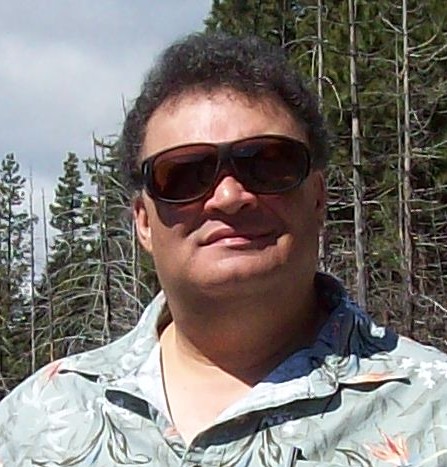I spent most of my childhood in Bisbee, Arizona, a small mining town tucked into the Mule Mountains 90 miles southeast of Tucson. Many people made a decent living working in the mines; some, like my father, lost their lives there. The mines closed in the mid-1970s and the miners have been replaced by hippie artist types. One can get a bumper sticker: “Bisbee, AZ. It’s Like Mayberry on Acid.”
Living in Bisbee wasn’t bad at all. We had a Safeway grocery store, a movie theater and a Dairy Queen—all hallmarks of civilization. But every so often we’d trek two hours north and west to “the big city” of Tucson to buy groceries a little cheaper or to shop for stuff at Sears. Highway 80 took us out of town, through Tombstone, St. David and Benson until it dead-ended at Interstate 10. From there we drove the modern, four-lane into Tucson.
Sometimes we’d spend the day with one of two families we knew. Barbara and Art lived in South Tucson. There was a sign propped up against the wall in Art’s garage—a cartoon worm with a bow tie, top hat and a big smile saying, “Howdy, Folks!” My sister and I would play with their three daughters, Troy, Debbie and Laura, while the adults did whatever adults do when kids aren’t bugging the crap out them. One evening, when we were getting ready to leave, I put my fingers in the wrong place and the back door closed around them. It hurt like hell and prompted a trip to Tucson Medical Center’s ER, where an x-ray showed nothing broken.
Woody and Dolores lived farther east, near the intersection of East 22nd and Wilmot Road, where the Oxford Plaza was built in 1960, making it the second largest shopping center in Tucson. The backyards of all the houses were enclosed in 6ft cinder-block walls that opened to an alley running by a drainage ditch, known as a “wash.” Pantano Wash, a couple of miles away, is a much larger canal, usually dry as a bone until monsoon season, when sudden thunderstorms beget raging torrents carrying all sorts of debris and the occasional car driven by some dumb-ass who didn’t think the water was that deep or powerful.
Their older son, Jim was in high school and starting to become rebellious. He had a poster of Frank Zappa sitting on a toilet on the wall of his bedroom, the infamous Phi Zappa Krappa. Richard was closer in age to me, so we hung out together, playing in the back yard or prowling the neighborhood. My sister usually wasn’t included but I’m sure she was around since my mother would not have left her home alone.
Arizona doesn’t observe Daylight Savings Time, so even in the summer it’s dark by about 7:00-7:30pm. When it was time to leave we’d pile into the back seat of our Chevy for the long trip home. I’d usually look out the window until we turned off the Interstate at Benson. There was a long house outside of town that, when the lights shone through the full-length windows looked a lot like the Wright brothers’ first airplane.
There was a lot of nothing along desert highways back then and even less traffic. Sierra Vista was a small speck of light 35 miles away—not the massive beacon it has become. I’d lay down on the back seat and listen to the soft rumble of tires on the road, interrupted only by the headlight dimmer, a small cylindrical switch in the floor near the driver’s left foot. Ka-Click. The lights would dim for an approaching car. Ka-Click. The high-beams came back on as the other car passed by. Punctuation in the ongoing conversation between the car and the asphalt that continued until we were back home.


